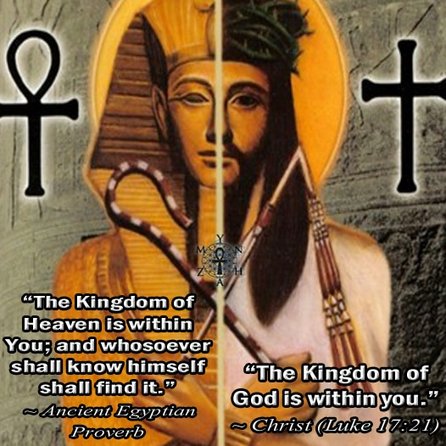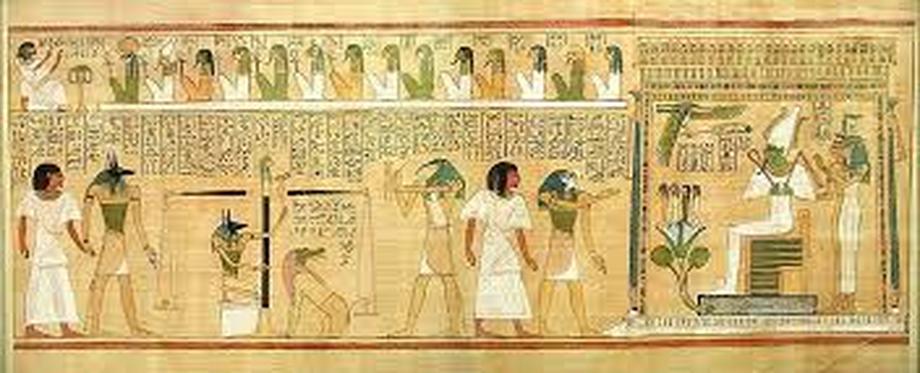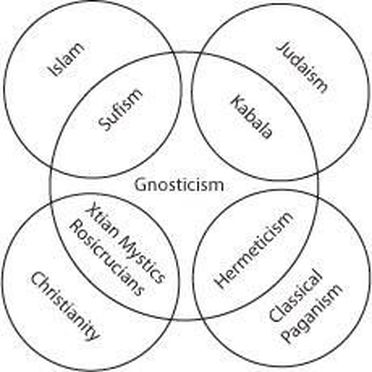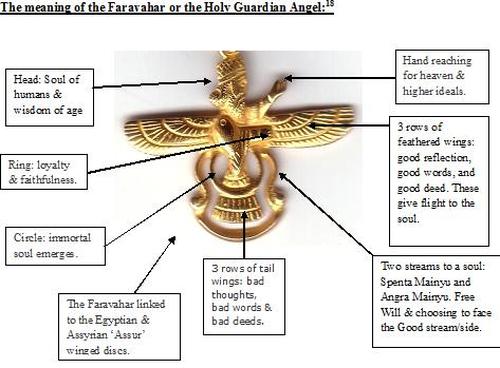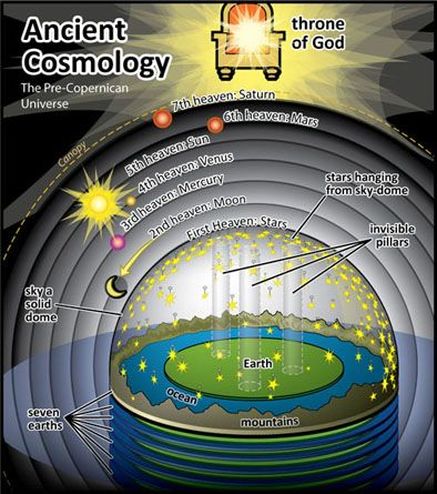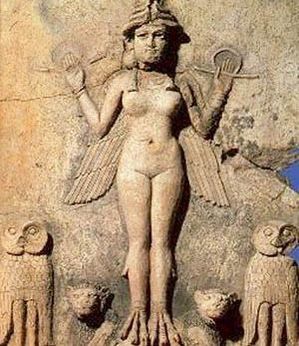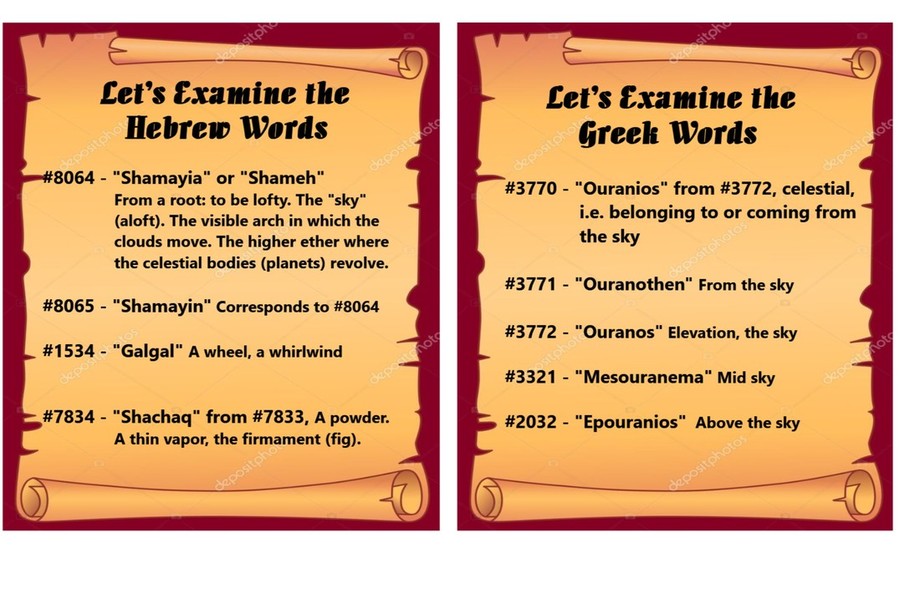"For the wisdom of this world is foolishness with God: for it is written, He taketh the wise in their own craftiness. And again, the Lord knoweth the thoughts of the wise that they are vain." 1 Corinthians 3:19
|
Dictionary Definition of "Heaven" Webster's 1828 Dictionary
|
Man's dictionaries do not reflect the truth or falsehood of words. They only site the way men use the words, right or wrong. In this lesson we will explore the way the Bible uses the word "heaven" and the way the various heathen thought about heaven.
Man has always wanted to live without ever dying. For centuries mankind has searched for security and happiness in the hope of going to heaven at death. However, the concept of Christians spending eternity in a place called "heaven" cannot be found in the Old Testament and Jesus's teaching did not include the idea either. Heaven, described as a sacred place or paradise, does appear in the myths and legends of cultures around the world. According to these legends, Heaven can be the dwelling place of the god or gods or the place where people who have lived virtuously find their reward after death. |
Heaven has often been described as a paradise of some kind, located above the earth - somewhere. In our own lifetime, the trips to outer space has disproven that idea for millions.
God reveals the answers to the mysteries of life and death in His Word, the Holy Bible. For people who have "eyes to see and ears to hear", the Bible does not suggest heaven is a physical, literal place where God, angels, or souls of dead people live . Rather the Bible says that God is Spirit, omnipotent, and not confined to physical boundaries. Regrettably, too many people have embraced pagan beliefs that cannot be proven true according to God's Word.
Matthew 24:14; "And this gospel of the Kingdom [NOT heaven] shall be preached in all the world for a witness unto all nations; and then shall the end come."
BUT God does have good things planned for us, including immortality. The first thing we will experience after we are called from our sleep (death) is Jesus' presence. We will not escape physical death. We all will die, and we are indeed dead when we die. But when we are awaken, we will reign with Jesus Christ.
II Timothy 2:12; "If we suffer, we shall also reign with him [Jesus]: if we deny him, he also will deny us:"
Revelation 5:10; "And has made us unto our God kings and priests: and we shall reign on the earth." "Not a place called "heaven"). See also Revelation 20:6.
II Timothy 2:12; "If we suffer, we shall also reign with him [Jesus]: if we deny him, he also will deny us:"
Revelation 5:10; "And has made us unto our God kings and priests: and we shall reign on the earth." "Not a place called "heaven"). See also Revelation 20:6.

Ecclesiastes 9:5; "For the living know that they shall die: but the dead know not any thing, neither have they any more a reward; for the memory of them is forgotten."
Ecclesiastes 9:10; " Whatsoever thy hand findeth to do, do it with thy might; for there is no work, nor device, nor knowledge, nor wisdom, in the grave, whither thou goest."
Psalms 6:5; "For in death there is no remembrance of thee: in the grave who shall give thee thanks?"
Ecclesiastes 9:10; " Whatsoever thy hand findeth to do, do it with thy might; for there is no work, nor device, nor knowledge, nor wisdom, in the grave, whither thou goest."
Psalms 6:5; "For in death there is no remembrance of thee: in the grave who shall give thee thanks?"
Since we all have this inner longing to live forever and a sickening fear of death, it is easy on the ears to be told what we want to hear. We want our hopes to be confirmed that we will immediately, painlessly, go to a beautiful place to "live" after our life on earth is over. This is why man, all over the world, has developed beliefs in an "afterlife", each with their own variations of how to get there - all from man's own imaginations.
Even many so-called Christian Churches preach that we are being watched over by our departed loved ones. They tell us there will be no pain, no sickness, no death, no bills, no worries in heaven where they say we go immediately after death. We desperately WANT to believe what they say is true. But is it?
Let's study out the history of the "Heaven" doctrine to see if we can discover how we were fooled into embracing this false doctrine. Study "The Immortal Soul Doctrine" lesson under Bible Nuggets Study Index to learn what God's Word has to tell us about what will happen when we die.
The Pagan Origins of Heaven
The idea that “souls go to heaven" at death originated in ancient pagan religions, not the Bible. A brief look at ancient history reveals that the people of Babylon, Egypt, and other pagan civilizations imagined an afterlife where godly souls go after death.
Osiris Jesus |
According to This Believing World, by Lewis Browne, the Egyptian god Osiris was thought to have been killed, resurrected and taken to heaven: “Osiris came to life again! He was miraculously resurrected from death and taken up to heaven; and there in heaven, so the myth declared, he lived on eternally”.
Browne explains: “The Egyptians reasoned that if it was the fate of the god Osiris to be resurrected after death, then a way could be found to make it the fate of man, too…The bliss of immortality that had formerly been reserved only for kings was then promised to all men… . |
The heavenly existence of the dead was carried on in the realm of Osiris, and it was described in considerable detail by the Egyptian theologians.
It was believed that on death the soul of a man set out at once to reach a Judgment Hall on high…and stood before the celestial throne of Osiris, the Judge. There it gave account of itself to Osiris and his forty-two associate gods”. If able to satisfy the gods, “the soul was straightway gathered into the fold of Osiris. But if it could not, if it was found wanting when weighed in the heavenly balances, then it was cast into a hell, to be rent to shreds of the ‘Devouress.’ For only the righteous souls, only the guiltless, were thought to be deserving of life everlasting”.
Egyptian Judgement Hall with Osiris the Judge and the 42 associate gods
Browne continues. “In very early times that idea flourished not alone among the Babylonians and Egyptians, but also among the barbaric tribes in and around Greece…These mysteries [came] down from Thrace or across the sea from Egypt and Asia Minor…They declared that for every man, no matter how poor or vicious, there was a place in heaven. All one had to do was to be ‘initiated’ into the secrets of the cult…then salvation was assured him, and no excess of vice and moral turpitude [i.e., depravity] could close the gates of paradise in his face. He was saved forevermore”.
The idea of a heavenly destiny was common in the first century among pagans schooled in Greek philosophy as well. It entered Christianity gradually after the deaths of the Apostles, through the incorporation of elements of Gnosticism. (A prominent heretical movement of the 2nd - century Christian Church, partly of pre-Christian origin.)
The idea of a heavenly destiny was common in the first century among pagans schooled in Greek philosophy as well. It entered Christianity gradually after the deaths of the Apostles, through the incorporation of elements of Gnosticism. (A prominent heretical movement of the 2nd - century Christian Church, partly of pre-Christian origin.)
|
Gnosticism
Gnostic = from Greek "gnosis" (knowledge). Meaning: of or relating to knowledge, esp. esoteric mystical knowledge. Gnostic doctrine taught that the world was created and ruled by a lesser divinity, the demiurge, and that Christ was an emissary of the remote supreme devine being, esoteric knowledge (gnosis) of whom enabled the redemption of the human spirit. |
Gnostic Christian "gospels" are Gnostic writings dressed up to look like Christianity.
- Its practices came principally from the Mystery Religions.
- Its theology came principally from Dualistic religion, such as Zorastrianism and Manichaeism.
- Its philosophy came principally from neo-Platonism (Plato, Plotinus).
- Its story (or myth) came from Christianity.
More Foolish Thoughts of Man Concerning "Heaven"
|
The Eight Taoist (Chinese) Immortal Beings
|
|
Sakaru at Tian-Yuan Gong - Temple of Heaven Pagoda
|
|
Japanese Amida Budda
|
|
Islamic Concept of Heaven
|
|
Norse God, Odin ruler of Asgard
|
|
The Elysian Field of the Greek Underworld
|
|
Ishtar (goddess of love)
|
Heaven and Immortality
We have examined some of man's ideas and concepts of heaven. The idea of "heaven" is bound up with that of eternal life. Descriptions of many pagan heavens make a special point of mentioning immortality, whether of the gods or of humans. This concept comes from the pagan doctrine of the immortality of the soul (see the study of the "Immortal Soul"). No where in God's Word can be found these wicked, deceitful doctrines.
Jeremiah 17:9; "The heart is deceitful above all things, and desperately wicked: who can know it?
Now let us examine what God's Word has to say.
Jeremiah 17:9; "The heart is deceitful above all things, and desperately wicked: who can know it?
Now let us examine what God's Word has to say.
These words were translated into "heaven" or "heavenly"
in the King James Version of the Bible
Uses of the Word "Heaven" and "Heavenly" in the Bible
The Scriptures use the word "heaven" in multiple ways, determined by the context in which it appears.
1. The atmosphere surrounding the surface of the earth - the locality of the clouds - the
sky. Deuteronomy 11:17; "And then the Lord's wrath be kindled against you, and he shut up the heaven,
[#8064, Shamayia] that there be no rain, ... "
Acts 14:17; "Nevertheless he left not himself without witness, in that he did good, and gave us rain from heaven, [#3771 Ouranothen] and fruitful seasons, filling our hearts with food and gladness."
See also: Genesis 1:6-8; Deuteronomy 28:12; Judges 5:4; Psalms 77:17-18, 104:1-3.
2. The vast stretched out expanse of space above the earth's atmosphere where the sun, moon, stars and planets are located. Isiah 13:10-13; " For the stars of heaven [#8064, Shamayia] and the constellations thereof shall not give their light: the sun shall be
darkened in his going forth, and the moon shall not cause her light to shine."
See also: Genesis 1:14-17, 15:5, 22:17; Jeremiah 8:2
3. A reference or figurative reference to God or His presence often alluding to his
elevated position as supreme, sovereign, omnipotent, omnipresent, immortal
Creator of all things. These are tangible terms to identify an intangible God.
Daniel 4:26; "... after that thou shalt have known that the heavens [#8065] Shamayin] do rule." ( It is God that rules, not in a place!)
Luke 15:21; "And the son said unto him, Father, I have sinned against heaven, [#3772 Ouranos] and in thy sight, and am no more worthy to be called thy son."
(We can sin against God, but we cannot sin against a place).
"Heavenly" in these verses refer to God's elevated position.
- Matthew 18:35; "So likewise shall my heavenly [#2032 Epouranios] Father do also unto you, ..."
- Luke 11:13; Jesus states, "If ye then, being evil, know how to give good gifts unto your children; how much more shall your heavenly [#3772, Ouranos] Father give the Holy Spirit to them that ask him?"
"Heavenly" in these verses refer to higher level things.
- In John 3:12; Jesus says, "If I have told you earthy things, and ye believe not, how shall ye believe, if I tell you of heavenly [#3770 Ouranios] things?"
- I Corinthians 15:48 states, "As is the earthy, such are they also that are earthy: and is the heavenly [#2032, Epouranios] such are they also that are heavenly [#2032, Epuranios]."
None of the above verses refer to a physical, literal place somewhere other than earth. Rather, they are talking about higher or elevated things or concepts.
Because of man's pre-conceived ideas and/or lack of understanding, some Scriptures may seem to describe heaven as a finite place. However, heaven is not a literal place for physical or spiritual bodies but is referring to being in the presence of God or referring to His position as omnipotent Creator. Revelation 19:6; "And I heard as it were the voice of a great multitude, and as the voice of many waters, and as the voice of mighty thunderings, saying, Alleluia: for the Lord God omnipotent reigneth."
If you think about it, confining God to a physical place is foolishness. Acts 7:48-50; "Howbeit the most High dwelleth not in temples made with hands; as saith the prophet, Heaven is my throne, and Earth is my footstool: what house will ye build me? saith the Lord; or what is the place of my rest? Hath not my hand made all these things?" See also: Isaiah 66:1; Acts 17:24.
If you think about it, confining God to a physical place is foolishness. Acts 7:48-50; "Howbeit the most High dwelleth not in temples made with hands; as saith the prophet, Heaven is my throne, and Earth is my footstool: what house will ye build me? saith the Lord; or what is the place of my rest? Hath not my hand made all these things?" See also: Isaiah 66:1; Acts 17:24.
God is spirit and cannot be confined to a physical place. He is omnipresent. (present everywhere at the same time.) Proverbs 15:3; "The eyes of the Lord are in every place, watching the evil and the good". Man's attempt to depict a physical heaven where God, Jesus and spirits dwell is not supported by the Bible. Heaven refers to God's reign, not a place.
Kingdom of Heaven/Kingdom of God
The following Bible references use the phrases "Kingdom of Heaven" and "Kingdom of God" to illustrate the realm/reign of God, in the presence of God, or pertaining to God:
- Matthew 3:2 states, "And saying, Repent ye: for the Kingdom of heaven [#3772, Ouranos] is at hand."
- Mark 1:15, Jesus states, "The time is fulfilled, and the Kingdom of God is at hand: repent ye, and believe the gospel." (compare to Matthew 3:2)
- Matthew 13:31, Jesus states,"The Kingdom of heaven [#3772 Ouranos] is like to a grain of mustard seed, which a man took, and sowed "in his field:"
- Luke 8:10, Jesus states, "Unto you it is given to know the mysteries of the Kingdom of God; but to other in parables, that seeing they might not see, and hearing they might not understand." (check Matthew 13:11)
- See also: Matthew 11:11; 16:19; 23:13; 19:14; 25:1; 6:33, Luke 7:28, Mark 10:14.
These verses show that the phrases "Kingdom of heaven" and "Kingdom of God" are interchangeable and are the same in meaning. There is no mention of a physical, literal place.
If our beliefs are the same as the ancient pagans,we need to ask for God's help to study His Word until we know the truth!
"But if any of you lacks wisdom, let him ask of God, who gives to all generously and without reproach, and it will be given to him." James 1:5
"Ask, and it will be given to you; seek, and you will find; knock, and it will be opened to you." Matthew 7:7
God doesn't want us to worship Him as the Pagans worshiped their gods.
"Thus saith the LORD, Learn not the way of the heathen, ..." Jeremiah 10:2.
"You shall not do so unto the LORD your God: for every abomination to the LORD, which he hates, have they done unto their gods; for even their sons and their daughters they have burned in the fire to their gods." Deuteronomy 12:31
"And ye shall know that I am the LORD: for ye have not walked in my statutes, neither executed my judgments, but have done after the manners of the heathen that are round about you." Ezekiel 11:12
"But if any of you lacks wisdom, let him ask of God, who gives to all generously and without reproach, and it will be given to him." James 1:5
"Ask, and it will be given to you; seek, and you will find; knock, and it will be opened to you." Matthew 7:7
God doesn't want us to worship Him as the Pagans worshiped their gods.
"Thus saith the LORD, Learn not the way of the heathen, ..." Jeremiah 10:2.
"You shall not do so unto the LORD your God: for every abomination to the LORD, which he hates, have they done unto their gods; for even their sons and their daughters they have burned in the fire to their gods." Deuteronomy 12:31
"And ye shall know that I am the LORD: for ye have not walked in my statutes, neither executed my judgments, but have done after the manners of the heathen that are round about you." Ezekiel 11:12
Bob & Mary Lou Becker - {contact us by using the form at the bottom of our Home Page}
